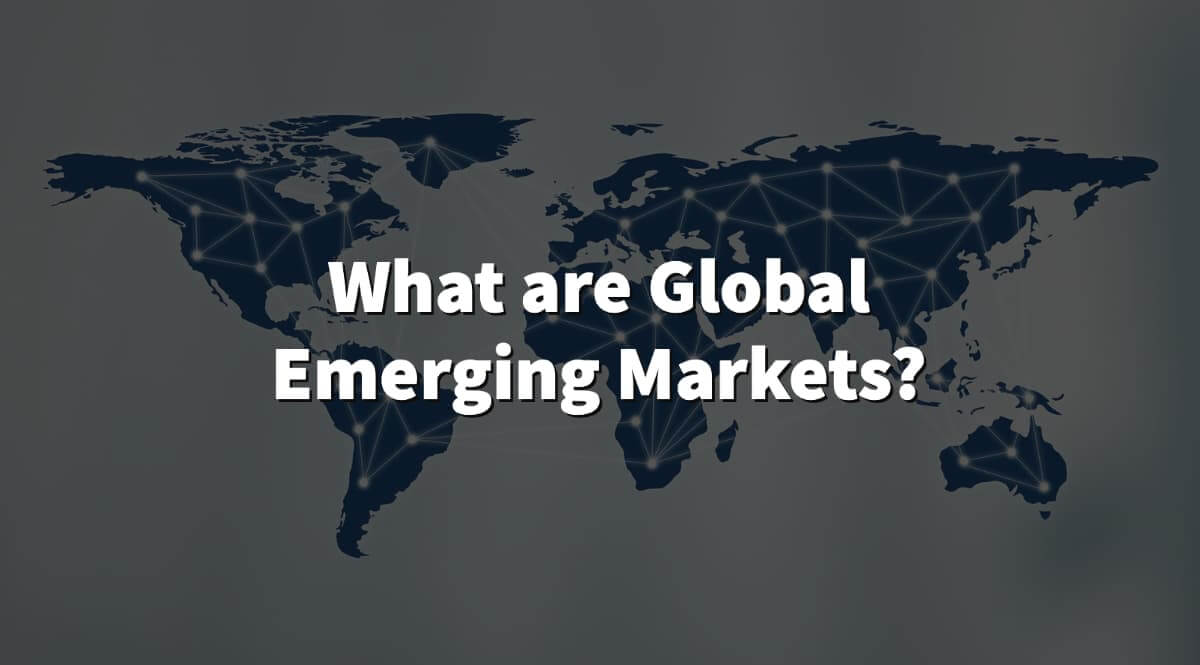
What Are Global Emerging Markets?
Emerging global markets describe the markets of a large number of countries across the world. These are markets that offer great opportunities in the coming decades, and analysts expect them to grow significantly. Significant examples of emerging markets include Brazil, South Africa, Mexico, and China, among others.
The most prominent of these would be the BRICS countries, which analysts had seen as some of the most promising emerging markets in the world. They were high in rankings of the highest-growing economies for many years. These countries had abundant resources, good demographic trends, and low labour costs. A commodities boom across the world meant that they were doing especially well. These days, this grouping of countries is not quite as prominent as it used to be. However, these countries are individually still likely to offer high growth in the upcoming years.
These are countries that were previously low-income, moving to medium and potentially high-income economies. The reasons these countries may not have become high-income so far are numerous. It could be due to the effects of colonialism, starting the process of industrialization late, or due to economic experiments that did not work out (such as the Eastern Bloc). These are often recently non-industrial, agricultural economies that are in the process of industrialization. Most importantly, the emerging markets analysts usually talk about show great potential in the future and could be some of the most important centres of trade in the world. With time, we will see how trade affects these global emerging markets.
The Process of Development for Emerging Markets
As emerging markets develop their economies, they go through a vast array of changes. Over time, there is greater integration with the global economy. So, the financial links with the outside world will be greater. This could be an increased amount of liquidity in local debt, as well as in local equity markets, as well as greater trade volumes. It also likely means foreign investment in the country is rising significantly.
Investors in countries that are already high-income are always looking for new investment opportunities. Due to their potential rapid growth, developing economies offer some of the greatest investment opportunities. The returns they may receive could be considerable. However, such investments are often a risk, as the development of countries is often not a linear process.
Positive Signs in Emerging Markets
When an investor is considering putting their funds in an emerging market, there are some things they can keep an eye out for to ensure their investments are safe. Despite the fact that these markets have not sufficiently developed some institutions, the basic building blocks should be there. They should have the basic infrastructure in place for finances. This includes a single currency they established, local banks, and a stock exchange. All of this is a good basis for building advanced institutions over time, so investors should feel reassurance if these are present. With the right reforms, they could be just like high-income countries in the future.

As they move towards industrializing their economy, the government should be guiding their country through specific reforms. If all goes well, they will strategise on how to grow their economies in several ways. They could try to encourage the growth of local industries in a more protectionist route, investing in them and defending them from outside competition. Alternatively, they could focus on ensuring growth by focusing on exports. This would open them up further to world markets and could make their own industries more competitive as they have to outcompete foreign firms. Emerging markets are more likely to focus on this second strategy, as it makes them more interconnected with world trade.
Instability in Development
Emerging markets are often unstable for a variety of reasons. There could be political troubles and volatility in the currency. Investors may then be especially turned off from investing in companies that the state owns (which often exist in emerging markets), which could undergo great instability from the aforementioned events. It could also be the case that the stock exchanges native to those countries have not developed sufficiently to offer foreign investors markets that are liquid.
Investors may also be put off by the poor development of market institutions, meaning their markets tend to be inefficient. There is also generally a lack of regulation. This could, therefore, lead to inaccuracies in accounting, making for risky investments. We should state, however, that a lack of regulation could also potentially promote growth in an economy, as there is less restriction to business. Therefore, a lack of regulation could potentially attract investors. It all depends on the specific situation in the country at the end of the day.
The Middle-Income Trap
One of the dangers for emerging markets is getting into the middle-income trap. In this situation, these emerging markets will not be able to reach their full potential and compete with the highest-income countries in the world, like Japan or the USA. These countries have reached the limits of their competitiveness in manufacturing low-value goods as wages rise. These manufacturing industries would have initially given them a boost in rising incomes. The problem is that they are then not as capable of moving on to competing in more complex industries like tech with more advanced economies. These countries can then end up living in limbo for decades, with wages rising relatively slowly. Examples of such countries are South Africa and Brazil.
With all this uncertainty, if someone is not used to a particular emerging market and wants their investments to be safe, there are other options. They could pool their investment together with others in an emerging market fund. These funds offer a great opportunity for investors to use professional advice while investing in these markets to make the right investment decisions. Funds also tend to lower risk due to the fund managers diversifying the investments. Pooling money also allows for investments into areas that lone investors often cannot reach.
There is still plenty of excitement about the paths that emerging markets could take. No one can say for sure which emerging markets will come out on top, but it is certain that there is plenty of potential there. Within the coming decades, the Fortune Global 500 will likely include more and more companies from these emerging markets. This will be one of the primary signs of what the shift in global trade will look like.




